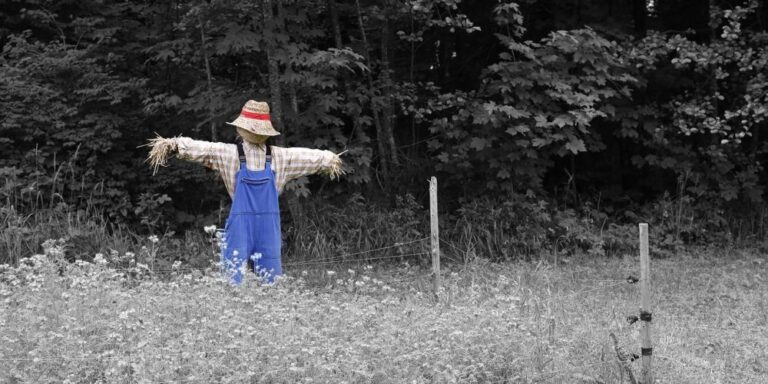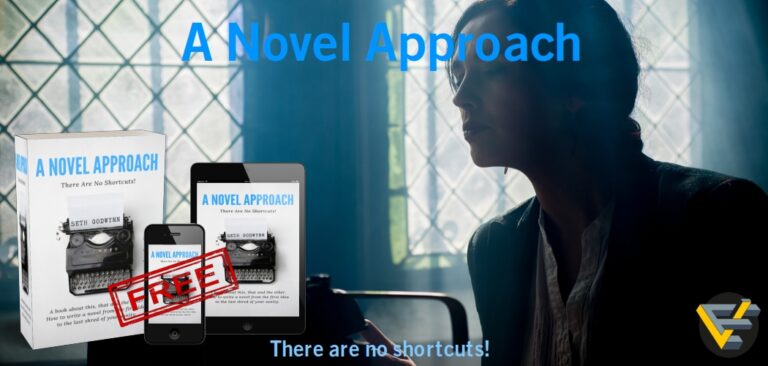A Tiresome Trio of Titling Tends
Seth Something
As I probably mentioned in my alleged book ‘A Novel Approach,’ the role of a work’s title is to sell it to an audience that otherwise is unlikely to care. It should give them just the right balance of enticement to trigger curiosity and make them feel that it warrants a deeper inspection. If I didn’t mention all this, then I’ll be sure to add it in the second edition.
Unfortunately, some people responsible for creating titles were obviously taking a sickie the day this was covered at writing school, as evidenced by the following irksome trends. Not all of these are inherently bad if used correctly. It’s just that often, they’re not, which means they are.
The Triple Entendre
A good title should ideally have more than one interpretation. For example, “Body of Evidence” refers to the totality of collected evidence in a criminal trial, but also refers to a literal dead body that is evidence of a crime.
This is very commonly done by having one of the readings be the character’s name, which is sort of cheating, but we’ll let it slide for the moment. For example, “Good Will Hunting,” where William Hunting is actually a good person, despite being portrayed by Matt Damon. In the original script, he was literally being hunted by government agents, but they handed that subplot off to the Bourne series folks because it was a terrible idea in the first place. Expanding on the therapist scenes, it was Robin Williams’ job to find the good will in Will Hunting, who is good. It sort of works, if you look directly forwards at it sideways.
Even more adventurous writers take it a little further, preferring at least three different interpretations of the title. This is a gamble that doesn’t always pay off.
A good example is “The Family Stone.” It is about the Stone family getting together at Christmas or some made-up American holiday that’s almost entirely like Christmas, but isn’t. The adult children spend the movie squabbling over who will receive the heirloom, a precious gem, the family stone. Stopping them all from killing each other to death is the elderly mother, who is like a rock, the family stone as it were. Without commenting on the movie itself, I give the title 10 out of 10 for creativity.
On the other hand, you have “The Glass House.” Like the previous example, it features a family named Glass. No problem so far. There’s also a kind of low key æsop about not throwing family stones in glass houses, which apparently was played up more in the novel, but mostly left on the cutting room floor for the movie because subtlety has no place in cinema. Also, inexplicably, their house is made entirely of glass. There is no explanation for this, nor does it offer any relevance to the plot whatsoever. I will comment on the quality of this one: it was terrible. It is best known for a scene where a little boy is given a video game and he immediately starts mashing buttons on it before he’s even turned it on, and Leelee Sobieski in a swimming costume.
Proper Nouns Sans Context
As previously established, including proper nouns (which are inherently arbitrary) in the title are perfectly acceptable providing they have an alternative interpretation, or there’s something else to work with.
Some good examples include “Finding Nemo,” “House MD,” “Chasing Amy,” “Thomas the Tank Engine,” “Harry Potter and the Philosopher’s Stone” and “Charlie and the Chocolate Factory.” There are enough extra words in the title to hint at a wider context.
Some on the fence examples are: “The Simpsons,” which I would allow as the definite article tells us it’s a family, and the name itself is very atypical sounding; “The Sopranos,” which I would not allow for the same reason; “This Is Spinal Tap” which I’ll allow as it hints at a documentary format; and “”Little Miss Sunshine” which I’ll also allow—it was the name of the pageant, but it also described the young female protagonist who was the only pure soul in the film’s universe.
Egregious examples include “Mary Poppins” and “Ally McBeal” because who the hell are these people and why should we care?!
There was an obscure TV series in the early 2000s called “Huff” which was all about Mr Huff (played straight by Frank Azaria) and his mid-life crisis, which was actually the example that inspired this article. Now that I think of it, that kind of works. For some reason I thought it was called “Tusk.” I’m going to put it as a fail simply because of how memorable the title evidently wasn’t.
Disembodied Adjectives Sans Subtext
Adjectives are a great way to imply multiple interpretations because they’re so inherently vague. It amazes me therefore that some simply don’t work.
An example of a single adjective title that works is “Lost.” The passengers were in a literal (depending on how you interpret the ending) sense lost on a magical island that was trying to kill them and nobody knew where they were. At the same time, each character as shown through flashbacks was lost in life in their own way.
Another example is “Die Hard.” On the one hand it points to the protagonist’s determination not to have his Christmas ruined. On the other, the bad guys did die pretty hard when their number was called. The word “Die” is quite flexible that way, as evidenced by every James Bond movie ever. Almost. It’s a pity they still found a way to ruin it in the sequels with “Die Even Harder” and “A Good Day to Die Hard” which both fail on multiple counts.
On the flipping the bird side, we have Disney with such classic titles as “Tangled.” Her hair was like a mile long, so obviously she was going to have bad hair days, but this was not a prominent feature of the story. You could at a stretch say that the title did not in fact refer to her hair (which never at any point tangled) but the psychological effects of an overbearing parental figure on her psyche, her ‘mother’ being inextricably entwined in her sense of self. That’s pretty good actually, but I really had to work at that, because I love telling people they’re stupid and wrong, and that includes me.
Similarly, we have “Frozen,” so named because it was set in a place that was really quite cold, and that’s about it. Now, you could argue that the character Hans had a frozen heart, because he was the only decent person there who cared about the citizens he served. He cared so much, in fact, that he was willing to commit treason in order to free them from the oppression of the giggle-sisters as they galavanted around the mountains singing awful songs, bringing fragile sentient beings into existence, and freezing everyone to death. What an arsehole. You see, it doesn’t fit. It literally just means it’s a bit cold.
Inconceivable Word Use
People often use words, only for others to point out that the word does not mean what they think it does. This is doubly so when it comes to the rule-of-cool in titling.
There are no good examples, so let’s jump straight to the bad.
“The Avengers.” What are they avenging? Nothing, that’s what.
“Doctor Who.” He’s not a doctor, and we know who he is.
“Friday the 13th.” Irrelevant to the plot.
“Divergent.” It’s like they came up with the title and based the plot around it, poorly.
“Axwyn Axylgrynden’s Antagonistic Aunt.” 10 out of 10 for alliteration, 0 out of 100 for being irrelevant to the plot, because there is no plot—it doesn’t exist, unless I can think of a story to base around it.
“The Virgin Suicides.” One of them was not a virgin when she committed suicide (spoiler). I’ll give this one a pass because it had James Wood in it and the soundtrack by Air was so haunting it makes me want to kill myself every time.
Inexplicably Poor Grammar
Everyone likes to use words wrong, or at least in ways that don’t quite sound right. I always wondered, for example, why in the song Bohemian Rhapsody that when he talks about a gun, he pulls ‘my’ trigger, not ‘the’ trigger, or ‘its’ trigger. Is there a deeper meaning, or was Freddy Mercury just illiterate. I guess now we’ll never know.
This can be done well in titles, if done well, but when done badly, the results are often bad.
A good example is “Sex and the City.” Instinct says that is should be Sex ‘in’ the City, but this deliberate choice was to present ‘sex’ and ‘life in the city’ as two separate but overlapping concepts. It was also the name of the column the main protagonist wrote, probably. So well done for that.
A bad example is “Gone Girl.” A girl literally disappears (assumed murdered). She is, in effect, gone. And because she was really such a bad person, perhaps everything that made her who she was was gone too. But why the poor grammar?! There’s no good reason for it. There’s no bad reason for it either. It simply is.
“Good Will Hunting” probably fails here too.
Other shoutouts go to “Honey, I shrunk the Kids,” “Two Weeks Notice” and “The 40 Year-Old Virgin” (‘virgin’ should be plural).




To summarise, if you find yourself in a position where you have to provide a title for a work, try to avoid doing any of the things I just mentioned as being bad, and instead emphasise everything I mentioned about being good.
Or don’t.
Many thanks for reading this article. We hope it was interesting, informative and entertaining. Follow us on social media or share our content on your own pages. It helps us grow so we can create more free content for you.



Also related to Titles of books, Some new authors and publishers have bad cover designs. They just license a crappy ai generated digital image and its often not appealing to stare at at all. also remember when Terry Goodkind smack talked his own cover artist on facebook? LOL
-Franz